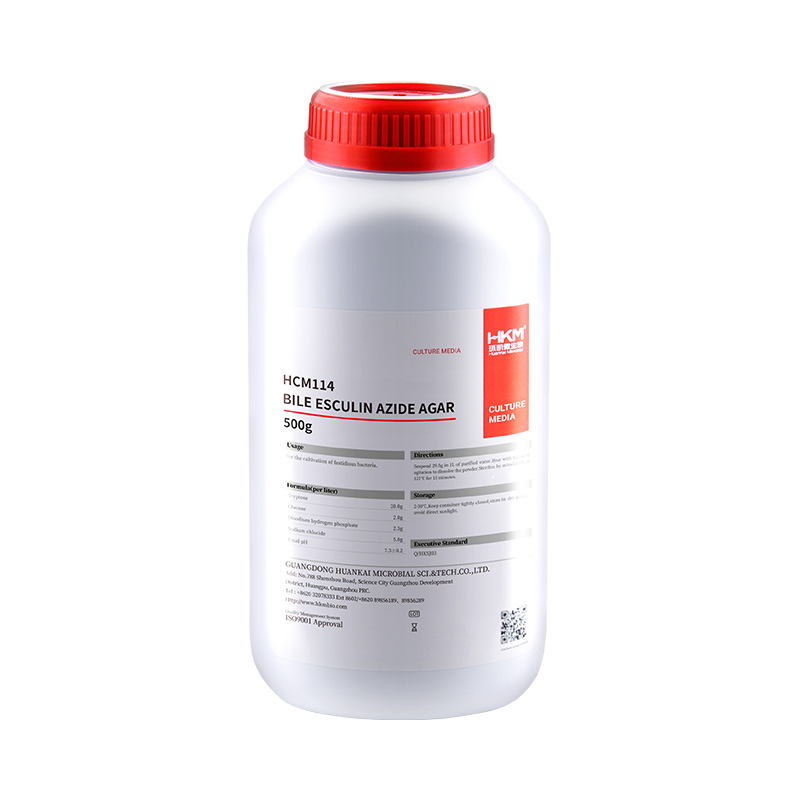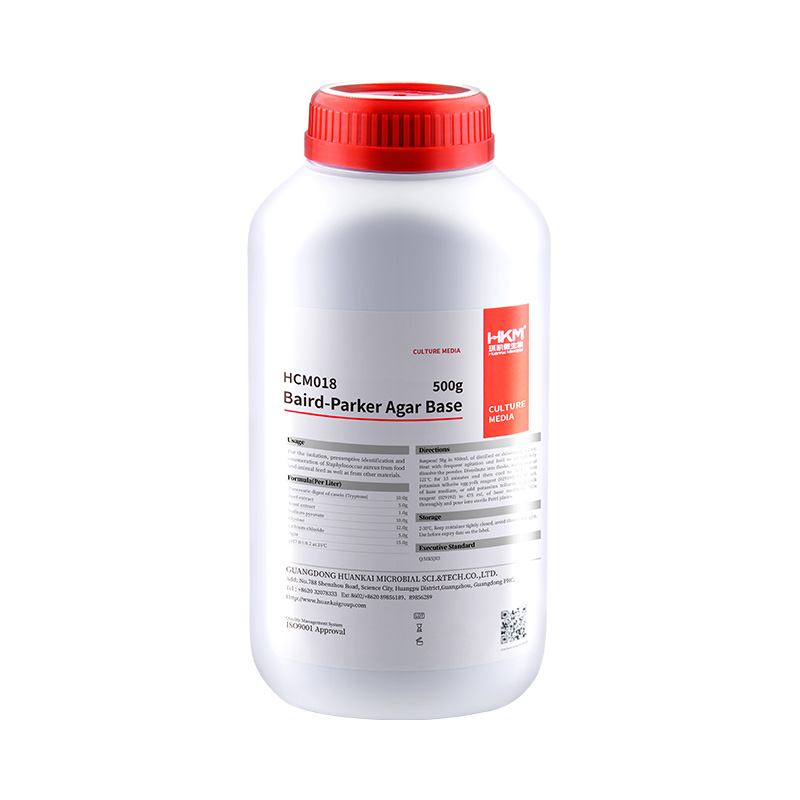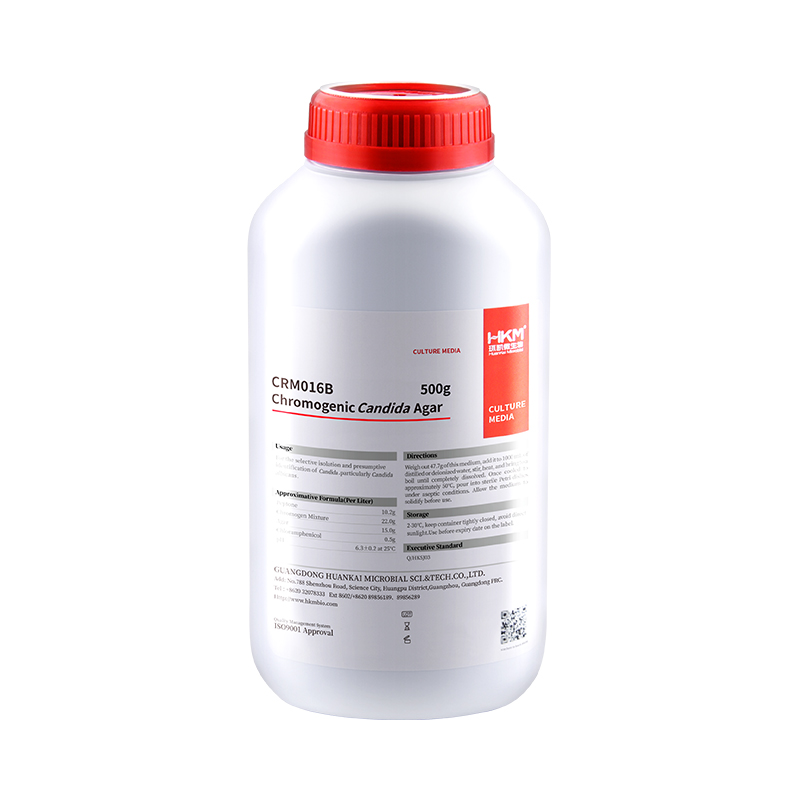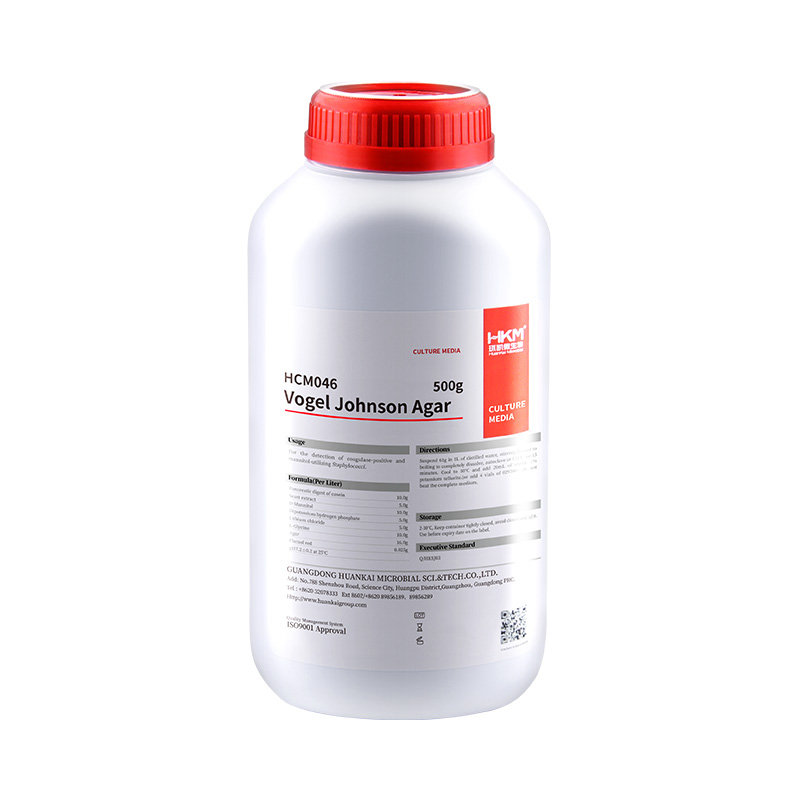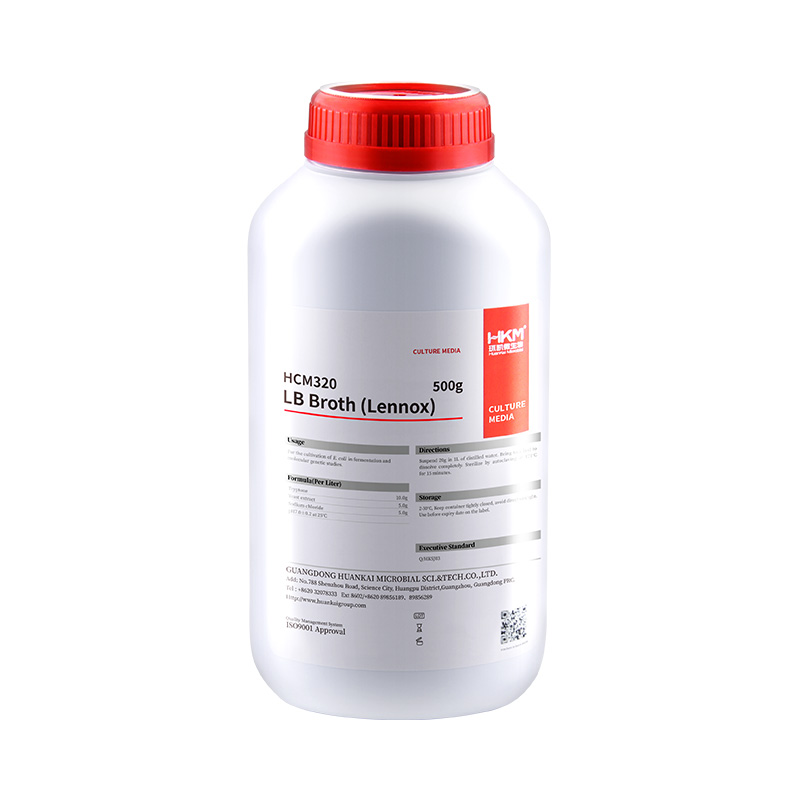HCM114 Bile Esculin Azide Agar
$199
Intended Use For the selective separation and enumeration of enterococci in food and water. Principle and Interpretation Tryptone and peptone are the sources of nitrogen and essential grow……
Introduction
Intended Use
For the selective separation and enumeration of enterococci in food and water.
Principle and Interpretation
Tryptone and peptone are the sources of nitrogen and essential growth factors. Yeast extract acts as well nitrogenous compounds and additionally the vitamin B12 complex. Sodium azide acts largely inhibits the growth of gram-negative bacteria while sparing enterococci, staphylococci and streptococci. Ox bile inhibits most gram positives but not enterococci. Enterococci hydrolyse esculin to esculetin and dextrose, which reacts with ferric citrate producing a brownish black precipitate around the colonies. Tolerance to bile and the ability to hydrolyze esculin is the traditional and reliable test for the identification of enterococci. (4). Sodium chloride maintains the osmotic balance of the medium and Agar is the solidifying agent.
Formulation
| Ingredients | /liter |
| Tryptone | 17.0g |
| Ox bile | 10.0g |
| Yeast extract | 5.0g |
| Sodium chloride | 5.0g |
| Peptone | 3.0g |
| aesculin | 1.0g |
| Ferric ammonium citrate | 0.5g |
| Sodium azide | 0.15g |
| Agar | 15.0g |
| pH 7.1±0.1 at 25°C | |
Preparation
Weigh 56.6g of dry powder of this product, add 1 L of distilled water or deionized water, stir, heat and boil until completely dissolved, and sterilize at 121℃ for 15 min.
Quality Control
Cultural characteristics observed after incubation at 35-37°C for 20-24hours.
| Quality control strains | Growth | Colony color |
| Enterococcus faecalis ATCC29212 | PR≥0.7 | Brown-black halo |
| Escherichia coli ATCC25922 | inhibited | Absence of brown-black halo |
Sorage and Shelf Life
Keep container tightly closed, store in a cool, dry place, away from bright light. Storage period of 3 years.
Precautions
1. When weighing the dehydrated medium, please wear masks to avoid causing respiratory system discomfort
2. Keep container tightly closed after using to prevent clumping.
Waste Disposal
Microbiological contamination was disposed by autoclaving at 121°C for 30 minutes.
